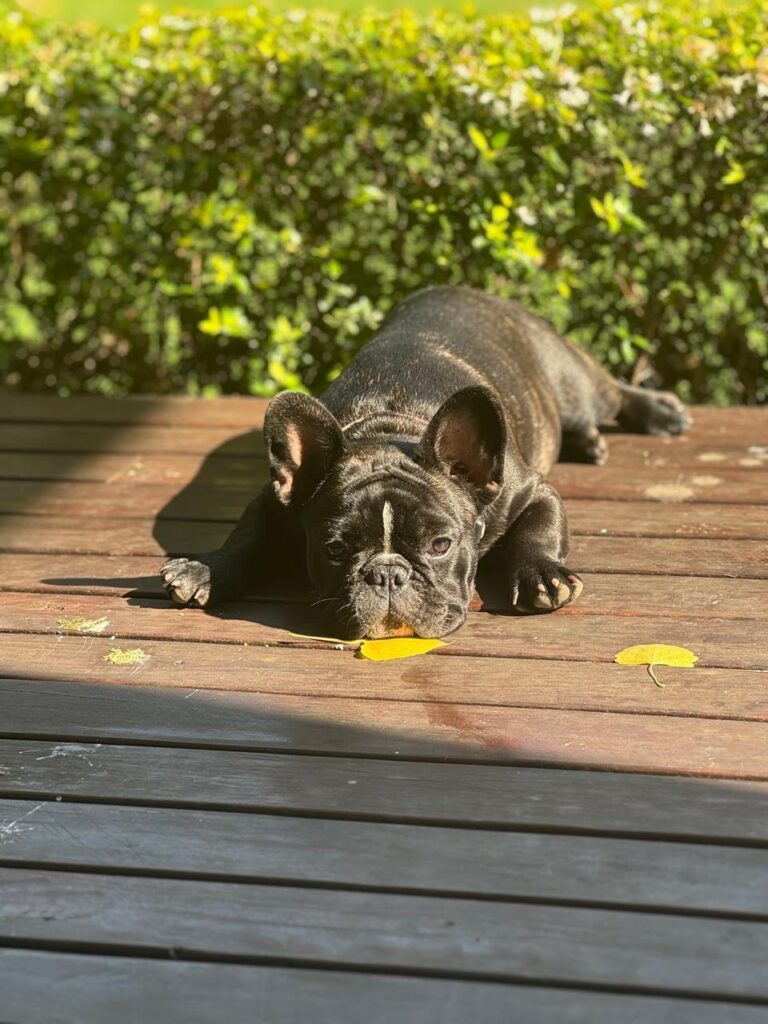





The Japanese concept of Ma refers to nothingness or silence. It’s a beautiful concept, and their entire culture is filled with Ma. The most recognisable Ma moment is when the Japanese bow down to greet someone. This bow has a deliberate pause at the end of the bow before they come back up. This pause is to ensure the greeting is meaningful and respectful. Why is it that the rest of the world is afraid of nothingness? We hardly ever sit in silence anymore. Silent moments in conversations make most of us uncomfortable, even introverts like me. I am the first person to cave during a quiet moment. I often start a slightly hysterical, inappropriate rant in a high-pitched voice over a mundane topic like the weather – anything to break the silence. A few years back, I was in a life phase filled with nothingness. What does one do when one’s life feels like a long, awkward silence?
Hello darkness, my old friend. And the vision that was planted in my in my brain still remains within the sound of silence. Silence like a cancer grows – The Sound of Silence, Disturbed

Eckhart Tolle, a writer and spiritual teacher, describes the importance of silence or nothingness. When we write, we need open spaces between words to form a comprehensible sentence; when we speak, we need silence between the sounds we utter to form words and sentences. If it weren’t for nothingness and silence, our writing would be a long line of letters, and our conversations would be an incomprehensible, long jumble of sounds. He writes that one instinctively listens for the silence between sounds, looks for the open spaces between words, and can only hear or see it when one is not thinking about it.
Even music needs silence. A famous conductor, Daniel Barenboim, said that one must observe the relationship between sound and silence to appreciate music. It is the tension in this relationship that gives music its expressive quality. The emotion of music lies in the sound produced by an instrument that is sustained for a certain amount of time, and when the sound dies down into silence, the listener experiences a small death. That’s why music has the ability to bring one to tears.
Space is the breath of art – Frank Lloyd Wright

When my career ambitions failed to be realised, I went through a year of nothingness. I woke up in the morning with no reason to get dressed. After years of studying and putting in the work, I suddenly had nothing to do. This sudden quietness in my life felt like the small death Daniel Barenboim, the conductor, talks about. I now realise I mourned my splintered dreams and the life I thought I would have. My fear of having nothing to do had me desperately searching for things to fill the quiet moments. Spending quality time with friends and family was not an option because they were at work during the day, so I exercised twice daily, took quilting, and enrolled in online courses. Still, there were moments when I just had to sit in silence with myself. I had to face my sense of purposelessness and the anxiety it caused me. I was forced to come to terms with a slower life and the fact that there is not always the next thing to rush to, and after a while, I began to enjoy my slower life.

Time and silence are the most luxurious things today –Tom Ford
According to Eckhart Tolle, one needs moments of silence in one’s life. Short daily silences are used to process an event that happened and to prepare oneself for what is to come next. Sometimes longer silences are needed. A period of nothingness to move on from one life phase to another. Just as open spaces give meaning to a written sentence or silence from sounds into separate words, unfilled moments in one’s life give meaning to what happened and what is to come. Without these quiet moments, one’s life becomes a long string of events without meaning. Patrick Bringley, the author of All the Beauty in the World, worked as a guard in the Metropolitan Museum of Art in New York for ten years after the death of his brother. Before that, he worked at the New Yorker magazine, but when his brother died, he felt that the buzzy nonsense of the office felt fake, and he couldn’t carry on in a hurried world of ambition. He found a loophole that afforded him time to process his loss while getting paid. As a guard in a museum, he stood at his post for hours, thinking and looking at beautiful art, which eventually brought him healing and helped him move on.

The quieter you become, the more you can hear – Rumi
Channelling my inner Japanese, I started to enjoy waking up without an alarm jolting me out of a deep sleep. I took time to have coffee with my dogs as company and stopped feeling guilty that I wasn’t on my way (in rush hour traffic) to perform life-saving surgery. Even though I struggled to meditate, I became comfortable with my thoughts and could reflect on my life without having palpitations. I took up another Japanese practice: Shinri-Yoku, or Forest Bathing. This concept refers to finding calmness in nature. It is not just about going for a walk or run outside but rather about mindfully engaging your senses to soak up nature. Forest Bathing is best done in a forest, but the trees skirting the perimeter of the fairways of our golf estate had to do. I took long, daily, mindful walks with my dogs amongst the trees, deliberately leaving my phone at home.

When I asked my husband to give his thoughts about silence, he came up with the following: “It is important to have silence to process one’s thoughts. However, it is not only sound-silence that is important. One also needs visual-silence to clear one’s busy mind”. That was rich coming from him. My husband is also an introvert, and I often jokingly say that I am talking to myself as he does not even respond with the occasional “Mmm” that a two-way conversation requires. Still, if there is silence in the house, he immediately asks me why I have nothing to tell him. He is also quick to plan an activity to fill an empty day of nothingness, or when we sit quietly outside with a sundowner, he pulls out his phone and starts browsing. He is not very good at sitting still and allowing his mind just to be.

It takes two years to learn how to speak and sixty to learn to keep quiet – Ernest Hemmingway
We are so used to focusing on external stimuli. With social media apps and a constant stream of entertainment on one’s phone, one never has to deal with moments of either auditory or visual silence. We don’t have to think and reflect anymore. Recently, on a Saturday morning, I felt bored on the veranda at ten o’clock in the morning. I was more than bored. I recognised the discomfort of having nothing to do. My dad’s voice echoed in my mind: “Rentia, don’t just sit like that. Go and do something. Walk around the block if you must”. My discomfort soon turned into anxiety, and I tried to calm myself by trying to imagine what other people were doing at ten o’clock on a Saturday morning. After my period of nothingness, I managed to fill my life with work and studies, and I was so used to always having something to do or a deadline to meet. It was the same anxiety I experienced a few years back, but this time, I knew what I had to do. Resisting the urge to scroll social media feeds on my phone, I embraced my moment of nothingness. I knew it was a small luxury and tried to enjoy it. I tried to find the meaning of this moment. Thinking back to my year of nothingness, I remembered that I had to believe that I was not only valuable when doing something. I relished the thought that being, just being, was enough. And just then, my husband calling my name disturbed my peaceful moment – he found us something to do..!
Silence is the element in which great things fashion themselves together – Thomas Carlyle
